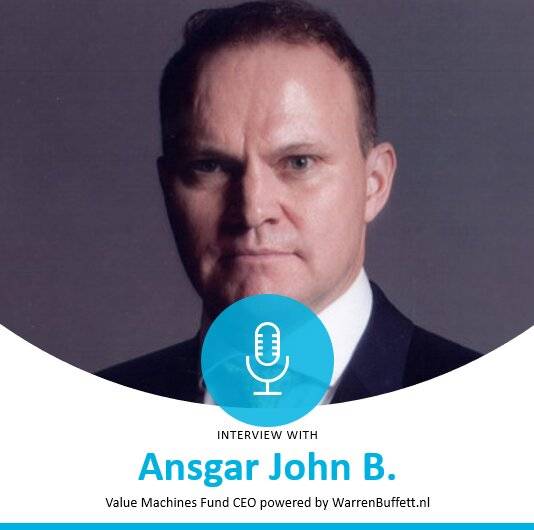For Mark Garrett, Brick and Mortar retail tradional concep will disappear. Mark is the managing director of Catmandoes Leadership, specialist in ecommerce, retail, transformation seeking interim and consultancy.
We start by assessing the current context of the retail sector
To properly assess the current context of the retail sector, all thinking now needs to kick off from a position that traditional sub-categorization of consumer focused trading, such as retail, hospitality, services, etc. are redundant. Businesses have to focus exclusively on delivering a service to the consumer. That service could be the supply of goods via a physical outlet, which we would normally view as retailing, but anyone that sees this as their sole purpose won’t survive.
So… Do you think the brick and mortar retail will disappear?
I think the traditional concept of going to a physical space to select and purchase staple products will disappear. Again you need to break it down into the component parts of the transaction. The research, selection, obtaining and purchasing (in terms of when payment is made) can happen over a varied range of location and channels. Therefore, just because the final step happens in a shop doesn’t define the transaction as offline retail. On that basis, offline retail will disappear, but I don’t think it will result in rows of empty shops on the high street.
Offline retail will disappear, but I don’t think it will result in rows of empty shops on the high street
What are offline defects and virtues in front of the online retail?
The primary defect is that it cannot currently anticipate and react to the specific changes in behaviour or need of the individual customer during the live buying process. In a shop, when a customer puts a product down and starts walking out there is an opportunity for a human to interact with the customer and understand why the buying signals they were showing have suddenly disappeared. I know everyone will shout “A.I.” at this point but, unless we can extend our detection of customer behaviour beyond keystrokes and clicks, it will remain almost impossible to persuade a customer to stay “in store” when they have decided to leave. And for many, this has been the primary virtue of online retail (and to a degree this is why we still haven’t moved beyond digital mail order catalogues in the past 20 years) is that you can avoid human interaction and move seamlessly from shop to shop without that awkward “I’ll think about it…” conversation. If you think about the key online success stories the removal of that awkward human interaction has been at their heart; Just Eat’s entire business model is designed to enable consumers to obtain cooked food without talking to anyone.
Even with the most progressive approach in the world, retailers are still reliant on external factors to be successful
What is the biggest problem or weakness that the offline retail has to face?
Offline retail has always evolved but, for most the process, has been gradual enough for nobody to really stand too far out from the crowd, in a good or bad way. The problem you have now is that the changes are so rapid that the entire ecosystem is unbalanced meaning that, even with the most progressive approach in the world, cutting edge retailers are still reliant on who their neighbours are and how much the parking costs to be successful. The destination stores have moved out of town (and are still struggling) so town centre and mall retailers are reliant on the entire offer to bring the footfall. Without that collective drive to deliver a great experience from parking the car to browsing the shops to having something to eat and home a single great retailer simply doesn’t have the gravity needed to bring the customers in sufficient volume to their door.
In the current context, what role does technology play in retail?
The biggest benefits technology has provided to retailers have to my mind been in the operational efficiencies of the business, which to a large part have enabled businesses to reduce cost of sale enough to have survie. Stock and resource management coupled with live trading data at the scale we see now wouldn’t have been possible 20 years ago. The next phase is for technology to have a meaningful impact on customer behaviour during the buying journey, because at present “click and collect” isn’t exactly the bleeding edge.
Retail in its tradional form of providing goods to consumers it has no future
Highlights a current technology or innovation that you believe is setting a trend.
Amazon Go is probably the most innovative approach to physical retailing which certainly adopts some of the most cutting edge technology to optimise the customer experience without compromising commercially. Self Checkouts and scan and go are continuing to grow in both use and space allocation but at their heart these technologies are putting the workload onto us as a consumer, again driving commercial efficiencies disguised as convenience.
What does it take for a store to work? Is there a magic recipe?
Yes, but it is unique to each individual location, time of the year and day of the week. As a recipe, it is like Momma’s homemade tomato sauce! You start with some core ingredients, people, layout, merchandising, environment… But overtime you need to add and adjust to get it working right for the specific audience. Sometimes it feels like the job is finished just getting the store open but all you have done is get to the starting line and this is where you need a great team to run the race.
The magic recipe it is like Momma’s homemade tomato sauce. The ingredients are people, layout, merchandising, environment…
How is customer loyalty achieved?
Here again I think the use of a word like Loyalty is no-longer relevant. This would indicate customers will continue to use a business despite its shortcomings not because of its offering. If you use a shop because it is the closest to your house or because they sell a particular type of coffee that isn’t loyalty it is simple practicality. There needs to be tangible benefits for customers to use any business, it is a transactional relationship (even if sometime the currency is not tangible) so the question isn’t how to create loyalty but how to differentiate your offering so the customer have no choice but to use you.
How do you see the future of retail?
In its traditional form of providing goods to consumers it has no future. Demographic, social, economic and environmental trends are all pointing to less consumption as a society. If anything we could see a fragmentation of the consolidation to the big box/hypermarket retailing of the past 50 years. It will require some structural changes at an infrastructure level, around business rates and transport but I think you are more likely to see local producers establishing a combined home delivery and local retail offer than another chain or supermarket taking up a significant retail footprint. Unfortunately, this kind of development will only work in areas that have the economic leverage to sustain them which will create a further polarization between affluent areas with a diverse and exciting retail offer and deprived areas that will continue to decline into economic and nuterinational wastelands.
THANK YOU SO MUCH MARK 🙂







